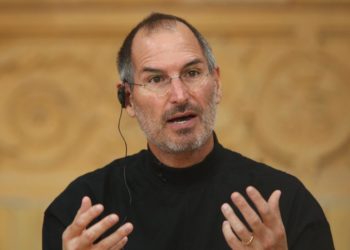Columbia University said Wednesday it had reached a settlement with the Trump administration to end federal investigations into civil rights violations stemming from the divisive protests at the New York City campus over the Israel-Hamas war.
As part of the agreement, the university said it agreed to pay $200 million over three years to the federal government to settle investigations launched by the administration ostensibly in response to allegations of antisemitism by students and faculty during the protests.
The administration agreed to reinstate the vast majority of federal grants that were terminated or paused in March 2025 and posed a significant threat to university operations, Columbia said.
“This agreement marks an important step forward after a period of sustained federal scrutiny and institutional uncertainty,” acting Columbia President Claire Shipman said in a statement.
The university said it would pay an additional $21 million to settle investigations brought by the federal employment discrimination commission. It said it would jointly select, with the government, an independent monitor to oversee the resolution’s implementation, but emphasized that “the agreement preserves Columbia’s autonomy and authority over faculty hiring, admissions, and academic decision-making.”
The settlement represents a capitulation by the university to an administration that had withheld more than $400 million. The school had already agreed to policy changes sought by the administration that had sought to punish Columbia for its response to the protests.
Columbia has been in turmoil since the Oct. 7, 2023, attack by Hamas on Israel that ignited the war in Gaza and inflamed long-simmering tensions at U.S. universities over the treatment of Palestinians by the Israeli government and American support for the Jewish nation.
Education Secretary Linda McMahon called the agreement “a seismic shift in our nation’s fight to hold institutions that accept American taxpayer dollars accountable for antisemitic discrimination and harassment.”
McMahon said in a statement that the agreement with Columbia has implications for other institutions of higher education.
“Columbia’s reforms are a roadmap for elite universities that wish to regain the confidence of the American public by renewing their commitment to truth-seeking, merit, and civil debate,” she said. “I believe they will ripple across the higher education sector and change the course of campus culture for years to come.”
The administration alleges that the school became a hotbed of antisemitism and failed to protect Jewish students and faculty – though many in the campus community and beyond view the administration’s response as infringing on academic freedom and free speech.
The university, which has lost two presidents during the tumult, said it does not admit to wrongdoing as part of the settlement. But it said in the statement that it affirmed that the “institution’s leaders have recognized, repeatedly, that Jewish students and faculty have experienced painful, unacceptable incidents, and that reform was and is needed.”
Columbia has an endowment of more than $14 billion — significantly larger than the vast majority of universities in the country, but small in comparison to Harvard, which has more forcefully rebuked the administration’s demands. The $400 million in frozen federal funding had already sharply restrained the university’s ability to conduct research.
Shipman acknowledged that the $221 million in the settlements was a “substantial” cost but said the school had not only had $400 million in grants frozen but also had the majority if its $1.3 billion in annual federal funding placed on hold.
“The prospect of that continuing indefinitely, along with the potential loss of top scientists, would jeopardize our status as a world-leading research institution,” she said.
The post Columbia University settles its costly battle with Trump administration appeared first on Politico.




